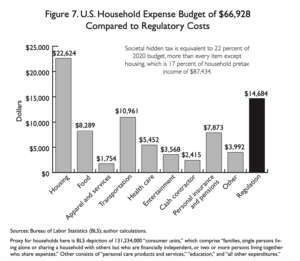Yesterday the Supreme Court heard oral arguments in a pair of cases brought by herring fishermen who have been forced by federal regulators to hire monitors at a daily cost of over $700 – more than 20% of their profits – even though the relevant federal law authorizes no such thing.
This case is about a lot more than fishermen and a $700 daily cost. At least six justices appear poised to strike down this foolish regulation, but more importantly, they may and SHOULD strike down entirely the dubious 1984 Chevron decision, which instructs courts (and Congress to defer to unelected regulators) who are effectively making laws out of thin air. It’s simple: Congress doesn’t make the laws anymore, the regulators do – and like kings and queens, they are responsive to NO ONE.
We have an unconstitutional and arrogant fourth branch of government that needs to be reined in.
Herein we have the greatest “threat to democracy” – and our Constitution- that ever existed and the left is fine with this because it expands government power. Regulators are supposed to enforce the laws – not make them. This modern convention of punting lawmaking to the unelected fiefdoms of ABC agencies enables Congress to pass vague and aspirational laws and then take no responsibility for their real-world harm to the citizens. The whole system is rotten to its core.
The costs to all of us are not in the hundreds of dollars – but the hundreds of billions of dollars. Almost none of these costs/taxes were directly approved by Congress:

Mark our words: the left will go bonkers when Chevron is (hopefully) overturned. They will say that this conservative court is overturning essential regulations that protect the environment, the workplace, the financial system, and children and kittens.
But if these regs are really so vital to our well-being, Congress should enact them, not the Lina Khans and the Anthony Faucis of the world.
Justice Kavanaugh nailed it when he mentioned the amicus brief by our friends at American Commitment Foundation which noted that state judges have overruled state Chevron-equivalent regs with none of the negative repercussions predicted by Chevron’s defenders.

